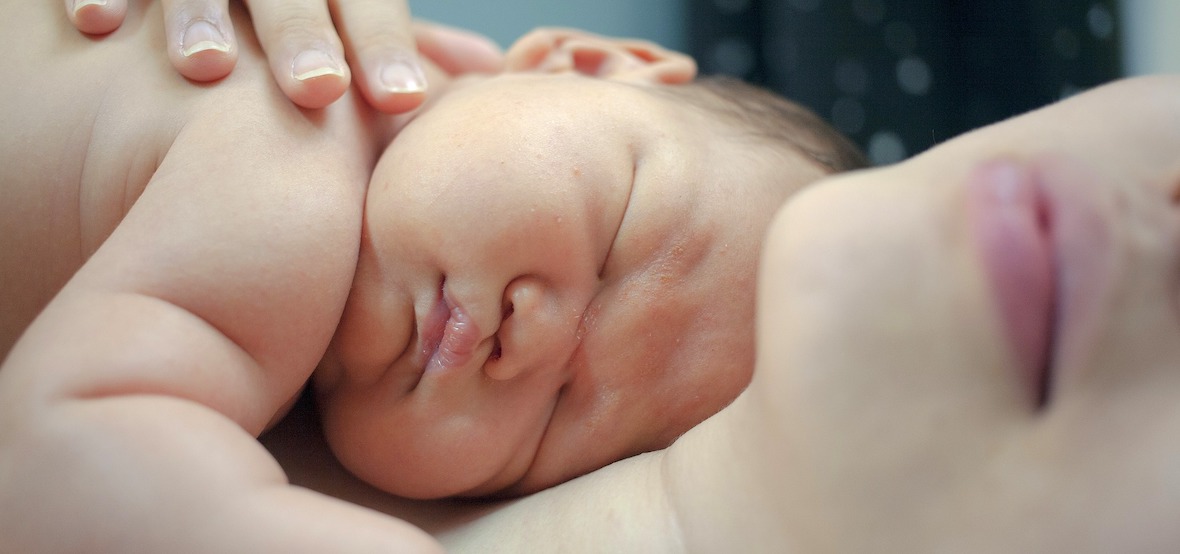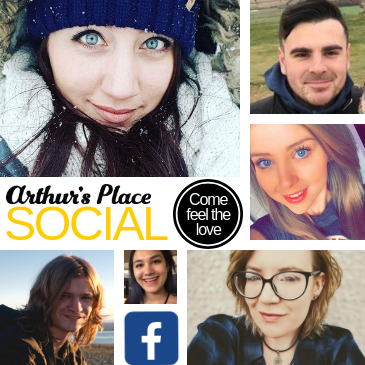
Image by samuel Lee from Pixabay
Having a baby is a strange and unfamiliar event – even if it’s not your first. Every baby is different and getting to know the new member of your family can be magical, confusing, stressful, exhausting and exhilarating.
Bonding with your new baby is something that we hear a lot about – but it doesn’t necessarily happen automatically for everybody. Bonding can take perseverance and effort. It may take a while for you and your baby to get to know each other and build your confidence and trust in each other.
All new mums face these issues – but when you throw a long-term health condition such as arthritis into the mix, that can exacerbate some of these difficulties, both physically and emotionally. You may have doubts about how you can manage your condition and a new baby at the same time.
However, it’s important to recognise that you have many positive qualities to bring to your baby, and that you are the best mum your baby could possibly have. Asking for help and building a supportive network around you doesn’t make you weak – it makes you strong.
Bonding through holding
In the early days, there’s no need to go rushing around cleaning the house and baking cakes. Even if you have visitors, they won’t care! Spend as much time as you like in a comfortable place with your baby.
You might want to have a couple of ‘cuddling stations’ set up, perhaps one upstairs in your bedroom, and one downstairs in the living room, where you have everything you need to hand, including a travel cot or Moses basket within easy reach. Minimising the amount of time you have to go up and down the stairs will help reduce exhaustion and pain, so setting up changing stations upstairs and downstairs, along with spare clothes, is also useful.
Quickly, you will learn how your baby likes to be held. Some babies enjoy being held flat; others prefer to be upright. They will have a favourite cuddling position – you will want to make this as comfortable for you as possible. Feeding cushions or large ‘pregnancy pillows’ can help take some of the pressure off your hands and arms. Slings may also be useful for holding and cuddling for long periods.
Amanda Savage, of the Professional Network of Pelvic, Obstetric and Gynaecological Physiotherapy, says: “If you’re thinking about bonding and being able to cuddle the baby, if you’re just having a cuddle or feeding, a sling will help take some of the pressure off your joints. Some slings can be really fiddly to get on and involve tying knots, whereas some have easy clips, which is why it’s a good idea to go to a sling library, go and try one, borrow one and see how you get on.”
Slings may not be the best option for carrying your baby around, though. “Although slings are lovely for bonding that might be too much weight on your body,” says Amanda.
“You might want to think about having two prams – a big pram with large wheels that you can take to the park and so on, but also having a small umbrella pram that you can take in and out of the car more easily. You might be able to pick one up second-hand to save money.
“A lot of car seats and prams will have fiddly straps and clips and buckles. It’s going to be really important for mums to give attention to choosing their car seats and prams. Some of the clips on car seats are really tricky. Go and try them out to find out the easiest for you.
“The weight of car seats and prams is going to be really important. Choosing light-weight kit is going to be worth the money. Car seats can be really heavy. It’s worth looking at a car seat that can clip onto wheels. You can also get car seats that swivel so you don’t have to lift them out of the car, but they are more expensive.”
Chat about this in our Facebook group
Bonding through feeding
Breastfeeding can be a minefield – but the most important thing is that you do what is best for you and your baby. You can find out about your options beforehand through antenatal classes – this will help you make choices, although when your baby arrives you may have to adjust these. Support and advice are also given from midwives, both in hospital and at home. The NHS has some useful advice and links for further support here.
The World Health Organisation advises breastfeeding; ‘breast is best’, and it’s likely that you will have been given this strong message during pregnancy. Colostrum, the yellowish, sticky breast milk produced at the end of pregnancy, is recommended by WHO as the perfect food for the newborn, so even if you are only able to manage feeding for the first few days, that will have given your baby a great start.
If you want to breastfeed your baby, there are ways you can make it easier for yourself – for example, finding the most comfortable position and using cushions, footstools and pillows that will support your back, neck and arms. Breastfeeding lying down is also an option.
Amanda Savage says: “Think about where you’re going to feed – feeding cushions are very useful to bring the baby up to you. There are lactation consultations who will come and give you advice at home and help you find the right position.”
However, it is common for new mums to experience an arthritis flare-up in the first few months after birth. If you stopped taking medication during pregnancy, you may need to start it again; this may not be compatible with breastfeeding. Some arthritis treatments are safe while breastfeeding and you will need to discuss this with your medical team.
There are other reasons why breastfeeding might not be the choice you make. If you are struggling with pain and can’t hold the baby to feed every few hours around the clock, nobody is going to judge you for it. Many mums don’t breastfeed, for many different reasons. There are other ways to nourish a baby, and a happier mum means a happier baby. And don’t worry – you can still bond with your baby while bottle-feeding. In fact, bottle-feeding means your partner, if you have one, can bond with your baby more easily too. Breast pumps can be useful here too – if you are finding it painful to sit and feed, but can express some milk, then you or your partner can give it to the baby in a bottle.
If you are bottle-feeding, you still need to make sure you are comfortable while doing so. Baby bottles come in all shapes and sizes, so try to find one that is easy for you to hold; or use grippers. If you find it difficult to take the tops off, you can release the air by pressing the teat down, which makes the bottle easier to open. Don’t forget – it’s fine to ask for help from your partner, family or friends.
Emma Citron, consultant clinical psychologist from north-west London, says: “Whether you’re in a partnership or have support from your friends and family – you don’t have to feel that you’re doing it all alone. You aren’t in isolation. Try not to feel overwhelmed.
“Don’t feel apologetic about your arthritis. Just try to be honest and upfront with people. If you’re having trouble, just ask for help.”
Bonding through enjoying your baby
This is perhaps the most important part of having a baby – and sometimes the most difficult. But small, quiet moments of connection with your baby can help build the bond between you and create something wonderful for you to share.
If you are struggling to feel that bond straight away, don’t panic – you can build it, with tiny steps, every day. The best activity for a baby is looking at their parent’s face and listening to their voice, and you don’t need to be carrying them to do that.
Dr Claudia Herbert, Doctor of Clinical Psychology and director of the Oxford Development Centre, says: “Every person with arthritis will have difficult days, where the pain is worse, and you will know some of the factors that make the pain worse or better. It’s important to pace yourself.
“The baby doesn’t need lots of stimulation or activities – just for the mother to be there. Mums shouldn’t feel that they have to provide a huge range of stimulation. It’s better to have a quiet day with the baby, in the home, just being together and connecting.
“Have some fun with the baby. Love it, and enjoy it, and actually take time to appreciate this new being that’s come into the mother’s life, which is rather special.”
Playing soft music at home to your baby may soothe you both; baby massage may also be a lovely way for you to bond. The NCT has some tips on baby massage here.
As the weeks go by, your confidence will grow, and your baby will find enjoyment in bonding with those close to you as well – giving you more time for yourself.
“It’s good when the baby feels that the mother is balanced and happy,” says Dr Herbert.
If you’re finding it difficult to feel joyful, you are not alone. Many mums struggle with this – even Kate Middleton has admitted feelings of doubt and a lack of confidence. As a new mum, you’re sleep-deprived, overwhelmed and anxious. Try not to keep your feelings bottled up. That’s where the team around you comes into play – family, friends, and health professionals.
There is an enormous amount of help and support out there, face to face and online, with apps such as Baby Buddy allowing you to access advice from your own home.
Emma Citron says: “No mother is perfect and there isn’t a perfect mother – a mother comes with their own baggage and health is a part of that for many people. Some people may be struggling with their mental health for example. That is part of who they are. It’s about getting the help and support to manage any specific difficulties that you may have.
“If you have a chronic condition like arthritis, it can do several things. It can make you potentially question whether you’re fit to be a mother – it can play on your confidence.
“Don’t keep things to yourself. If you’re struggling in some area, with the baby, or with your emotions, then reach out to others and talk about it. Share feelings of inadequacy. Everybody has these thoughts and feelings, whether or not they have a health condition. These emotions apply to everybody.
“The key thing is confidence – not to think of yourself as at a disadvantage in some way. You have your sensitivities, your warmth, your love, your care, and that’s what really matters, not your limitations, because everybody has limitations. It’s the positive things that you bring to this that matter.”

